
Dr. Jan M. Friedman (Professor/Principal Investigator)
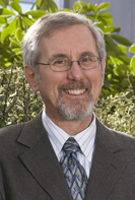
My research bridges clinical genetics and basic science. Our lab's work is focused in three major areas: (1) application of advanced genomic technology to identifying the causes of intellectual disability; (2) using genetic epidemiology to elucidate the pathogenesis of neurofibromatosis 1 and 2; and (3) development of a knowledge base on human teratogenic risks resulting from maternal treatment with various medications during pregnancy. I am also interested in the societal implications of genetics and am collaborating in several projects studying various social, economic, and ethical aspects of clinical application of new genomic technology.
Dr. J.M. Friedman's full CV (pdf)

*Patricia Birch, MSc, RN (Clinical Associate Professor/Lab Manager)
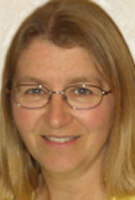
Patricia is lab manager and researcher. Her past career includes obstetrical and outpost nursing, genetic counselling, and projects in HIV, SARS, and avian influenza. In the Friedman Lab, she has worked extensively on neurofibromatosis research. Current interests also include communication of complex genomic concepts in meaningful ways to the general public and to parents of children who are considering genome-wide sequencing.

*Liza Mak, BBA (Lab Administrator)
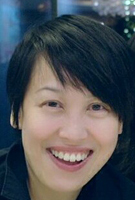
Liza provides administrative and financial support to the Friedman Lab and CAUSES Clinic. She was trained as an executive secretary in Hong Kong and earned her BBA from Simon Fraser University. Before joining the Lab in 2008, Liza worked in a bank for several years.

Shelin Adam, MSc (Clinical Assistant Professor/Research Genetic Counsellor)
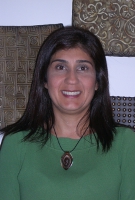
Shelin is a research genetic counsellor with a BSc in Genetics and a MSc in Genetic Counselling, both from McGill University. She is interested in the application of new genetic and genomic technocology. More specifically, she is interested in understanding the best ways to provide education, decision support and genetic counselling to families being offered genomic sequencing. Another area of her research is helping clinicians to understand genomic testing and its implications. Shelin has most recently been involved with the CAUSES research clinic at BC Children's Hospital which provides genome-wide sequencing for children and their parents who have complex, undiagnosed disorders and are unable to obtain a diagnosis by standard testing.

Alison M. Elliott, PhD, MS, CGC (Clinical Associate Professor)

Alison is a PhD geneticist and certified genetic counsellor who is the Project Lead for CAUSES Research Clinic, which provides diagnostic genome-wide sequencing for children in British Columbia with undiagnosed illnesses. Alison is Co-Lead of RAPIDOMICS, a pilot research program involving rapid genomic sequencing of neonatal patients with suspected genetic disorders. Alison is interested in genetic counselling issues surrounding genomic sequencing and health implementation research.

Kris Roberts (Program Manager)
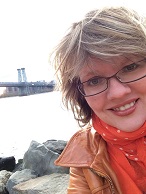
Kris is completing her Masters in Public Health and is doing an extended practicum in the Friedman Lab. Her expertise is in new modes of e-learning and communication, including social media. She is an APOGEE\Cangène scholarship awardee who has developed and tested a novel e-learning platform for pharmacogenomics and is currently working on a second module for direct-to-consumer testing.

Sura Alwan, PhD, MSc (Research Associate)
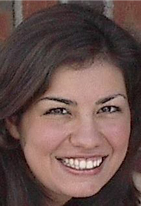
Sura is a birth defects epidemiologist and teratologist, who is interested in identifying exposures in pregnancy that may pose a risk to the developing fetus and contribute to causing birth defects and other adverse pregnancy outcomes. She is specifically interested in studying the effect of maternal chronic diseases and associated medications taken during pregnancy on baby's health. Currently, she is coordinating referrals of pregnant women to MotherToBaby, a service of the non-profit Organization of Teratology Information Specialists (OTIS), dedicated to providing evidence-based information to mothers, health care professionals, and the general public about medications and other exposures during pregnancy and while breastfeeding.

Nick Dragojlovic, PhD, MA (Research Associate)

Nick is conducting an evaluation of the economic and societal impact of obtaining a diagnosis through genome-wide sequencing as part of the CAUSES Clinic. He is a Research Associate in the Collaboration for Outcomes Research and Evaluation (CORE) unit at UBC's Faculty of Pharmaceutical Sciences, where he previously completed a postdoctoral fellowship (2013-2015) funded by awards from the Canadian Institutes of Health Research and the Michael Smith Foundation for Health Research.

Madeline Couse, MSc (Genome Analyst)
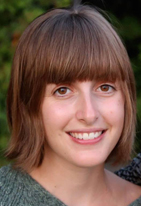
Madeline is a genome analyst working on the CAUSES and IMAGINE projects. She received a Master of Science in Genome Science and Technology. Her thesis tested bioinformatic pathways for analyzing structural and non-coding genetic variants in patients with rare Mendelian disorders.

Suvina To, MSc, CGC (Genetic Counsellor)
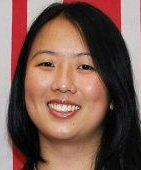
Suvina did her Bachelor of Science in Integrated Sciences at UBC with concentrations in biopsychology, functional biology, and health care. She completed her Masters of Science in Human Genetics at Sarah Lawrence College and is a certified genetic counsellor. She is currently involved with the IMAGINE study.

Indhu Shree Rajan Babu, PhD (Post-doctoral Fellow)
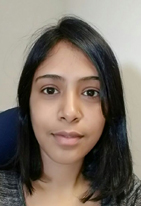
Indhu Shree has a Bachelor's and Master's degree in Biochemistry from Bharathiar University, India, and a PhD in Human Molecular Genetics from the Yong Loo Lin School of Medicine, National University of Singapore. Her doctoral work involved development of innovative genetic tests for the molecular diagnosis, single-cell preimplantation genetic diagnosis and newborn/population-based screening of fragile X syndrome, an X-linked intellectual disability caused by a short-tandem repeat hyperexpansion mutation. She is currently a Michael Smith Foundation for Health Research Post-Doctoral Research Trainee in the Friedman Lab, where she is working on the development of a clinical whole-genome sequencing pipeline for comprehensive analysis of pathogenic mutations that contribute to intellectual disability.

Hilal Al Shekaili, MSc (PhD Candidate)
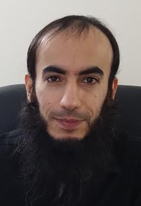
Hilal has a masters degree in biology from Sultan Qaboos University, in Oman, where his research was in micro-satellite genotyping of three critical genes related to sporadic breast cancer. He has additional training in bioinformatics, population genetics and statistical genetics from the University of Bologna, Italy. Hilal's PhD in the Friedman Lab relates to characterization of genes involved in some autosomal recessive neurodegenerative conditions.

Rachel Coe (Medical Student)

Rachel is a medical student at the University of British Columbia. She is a co-investigator on the project Indigenous Peoples and Genomics: Starting a Conversation, which holds sharing circle focus groups about an inequity in genomic healthcare that affects Indigenous patients. She is also working on the DECIDE project, studying the utility of an online decision-making tool about genome-wide sequencing and incidental findings, and she manages the databases for the IMAGINE and CAUSES projects.

Kevin Shopsowitz, PhD (Medical Student)

Kevin is a medical student at the University of British Columbia. He previously completed a PhD in Chemistry at UBC, followed by a post-doctoral fellowship researching nanomedicines at the Massachusetts Institute of Technology. He is currently characterizing genetic variants in Aicardi Syndrome.

Megan Chan (Directed Studies Student)

Megan is currently an undergraduate student studying Immunology and Genomics at the University of British Columbia. Megan is currently working on a Directed Studies project in the lab, analyzing RNA-sequence data from patients with Aicardi Syndrome with the aim of characterizing genetic variants associated with the disease.

Su Wang (Directed Studies Student)
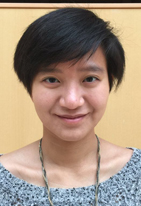
Su is an undergraduate student majoring in Biology at the University of British Columbia. For her directed studies project, she is performing an analysis to determine if variant CADD scores predict phenotypic severity in Neurofibromatosis Type 1.

Elisa Lau (Project Assistant)

Elisa is an undergraduate Integrated Sciences student combining Genetics and Neurobiology at the University of British Columbia. She is working on the IMAGINE project, which aims to provide a genetic diagnosis for children with atypical cerebral palsy using combined genome-wide sequencing and metabolomic testing. Elisa has also been involved with the DECIDE study on examining the effectiveness of various intervention strategies for families undergoing genetic testing.

Nicole Liang (Project Assistant)

Nicole is currently pursuing her Bachelor of Integrated Science in Genetics and Psychology. She is working on the DECIDE study, which evaluates an e-learning and decision support tool to facilitate parent's choices in whole genome sequencing. She has also been translating patient information resources on whole-genome sequencing for Chinese families as part of the IMAGINE study and will be engaged in a patient follow-up study within the CAUSES research clinic.

Nancy Makela, BSc, RN (Research Nurse)

Nancy is a research nurse who is currently working on a Health Technology Assessment project looking at the health care and heath policy challenges in genetic laboratory services. Her past experiences includes working on research projects involving HIV, SARS, and Avian Influenza in various cities with locations in hospitals, prisons, clinics and trailers in fields. She spent many years doing clinical trials and before that she enjoyed hospital and community nursing.
